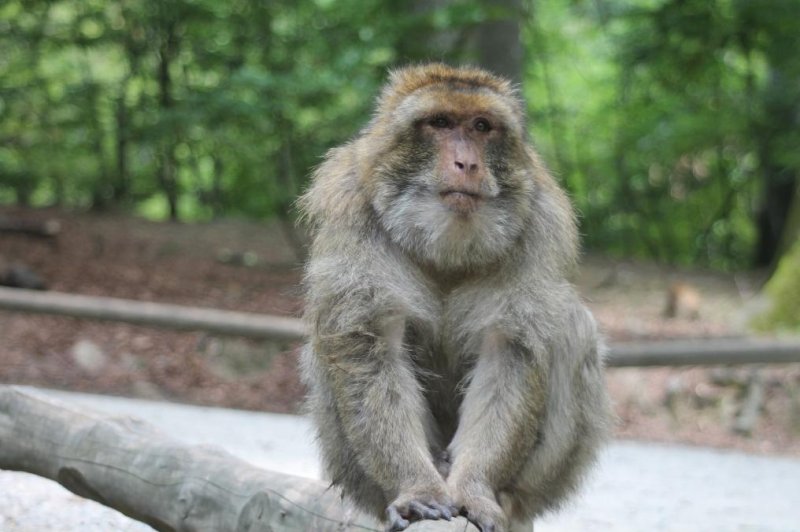Researchers found an area of the brain linked to the willingness to make risky decisions by training monkeys to gamble on water rewards, according to a study. Photo by
SIM2738/pixabay
Sept. 20 (UPI) -- An area of the brain linked to the willingness to make risky decisions was identified by studying monkeys trained to gamble on water rewards.
Researchers at Johns Hopkins University's Mind/Brain Institute believe this understanding of the neural circuits underlying risk taking in monkeys could lead to better treatments in humans. Their findings were published Thursday in the journal Current Biology.
"People think risk attitude is always the same for individuals, but behavior researchers have found this isn't true -- a person can be risk-averse for some things but inclined to risk in others, like someone who saves a lot of money but also skydives," co-author Dr. Veit Stuphorn, an associate professor at Johns Hopkins, said in a press release. "The change in risk attitude happens in the prefrontal cortex and our findings for the first time identify one critically important area."
Researchers identified the supplementary eye field, located between areas responsible for cognition and higher-order motor control, as playing a role in the level of risk the monkeys would take.
When this area of the brain was temporarily inactivated, the monkeys were 30 percent to 40 percent less likely to take risky bets.
"This was truly unexpected, to find a brain section so specifically tied to risk attitude," Stuphorn said. "The monkey's preference markedly changed from really liking risk to liking it much, much less."
Two rhesus monkeys were trained to gamble against a computer to win drinks of water. Both of these monkeys were naturally big risk-takers because they chose higher odds decisions with potentially high payoffs over much safer, smaller bets.
When offered a a chance to choose between a 20 percent chance to get 10 milliliters of water and an 80 percent chance of getting just three, they sought the big gamble, Chen said.
They still went for risky bets seemingly because they like the excitement of a win.
"The monkeys should rationally choose the 3 milliliters, but they always went with the riskier option," said lead author Xiamomo Chen, a former Johns Hopkins graduate student who is now at Stanford University. "They're like people who like to go to Las Vegas to play the slots, where there's a very high reward but a very low chance of winning it."
The researchers noted that suppressing the brain region had no tangible effect on other areas of the monkey's gambling, such as understanding the game or considering history when they chose to bet, for the most part.
If monkeys lost a round, they remained less likely to place big bets -- but they remained slightly more inclined to gamble if they'd just won.
The researchers believe the findings should apply to people because they share similar brain structures.















